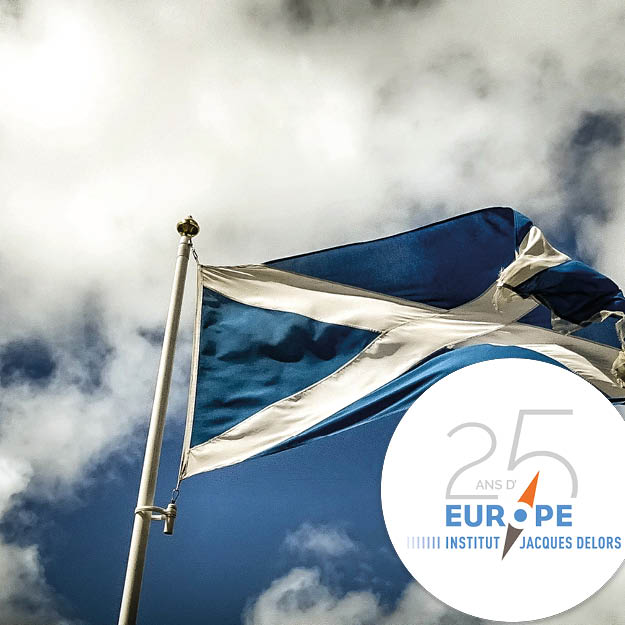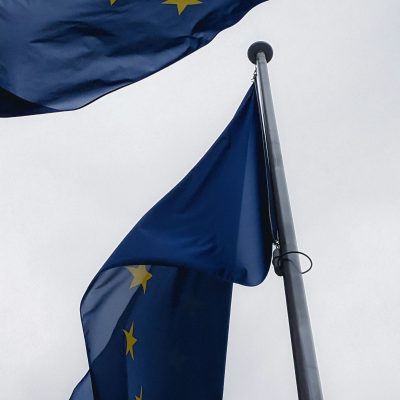Les ressorts de l’indépendantisme écossais

Le 6 mai 2021, les indépendantistes du SNP [Scottish National Party] sont arrivés largement en tête des élections législatives écossaises. En remportant 64 sièges sur les 129 que compte le Parlement de Holyrood, à un doigt de la majorité absolue de 65 sièges, le SNP s’est assuré une quatrième législature à la tête de l’Écosse. Avec l’appoint des huit sièges gagnés par les écologistes écossais, également favorables à la séparation d’avec le Royaume-Uni, le « camp indépendantiste » se trouve dans une position de force inédite face à Londres. Ces résultats ont immédiatement été interprétés par Nicola Sturgeon – leader du SNP et Première Ministre de l’Écosse depuis 2014 – comme un « oui » retentissant à la demande adressée aux électeurs en préambule de son manifeste de campagne, à savoir l’octroi de leur « permission » à la tenue d’un référendum sur l’indépendance, une fois passée la pandémie de Covid 19. Dans ses premières allocutions au lendemain du scrutin, Nicola Sturgeon a pris soin d’affirmer que ce référendum était « la volonté du peuple écossais » et non un simple dessein partisan, voire personnel. C’est donc forte de ce mandat démocratique que la première dame écossaise aborde la mission historique que s’est donnée son parti : celle de mettre fin à l’union entre l’Angleterre et l’Écosse, scellée il y a plus de trois siècles, en 1707.
Comment en est-on arrivé là ? Comment expliquer cette divergence de trajectoires entre l’Écosse et l’Angleterre ? Car c’est bien dans une atmosphère de croisée des chemins entre deux ordres de valeurs irréconciliables que se sont déroulées les élections de mai. Les indépendantistes ont déployé une grammaire quasi-manichéenne pour enjoindre les Écossais à choisir la société dans laquelle ils aspirent à vivre – soit une Écosse social-démocrate et européenne soit la Grande-Bretagne néo-libérale du Brexit. Brexit dont il faut rappeler qu’il avait été rejeté par 62 % des votants écossais lors du référendum de 2016 sur l’appartenance du Royaume-Uni à l’UE. L’hégémonie acquise par le SNP peut sembler confondante, dans le bastion travailliste qu’était encore l’Écosse jusqu’au début des années 2000, et alors même que la dévolution mise en œuvre à partir de 1999 par le gouvernement de Tony Blair était sensée offrir un débouché pacificateur aux revendications des nationalistes, en transférant d’importants pouvoirs décisionnels du Parlement de Westminster à une assemblée écossaise élue au suffrage universel. Et cette hégémonie est d’autant plus spectaculaire que l’indépendantisme est un phénomène récent en Écosse. Contrairement à l’Irlande voisine, qui gagna son indépendance à la force des armes en 1921, l’Écosse s’est longtemps satisfaite de sa position avantageuse dans la grande entreprise impérialiste britannique. La cause autonomiste y est certes ancienne mais, jusqu’au milieu du XXe siècle, elle a plutôt été pensée dans le cadre d’un maintien de l’union politique avec l’Angleterre. Ce n’est qu’à partir des années 1960-70 – et, surtout, sous l’aiguillon du thatchérisme pendant la décennie 1980 – qu’une forme plus radicale de nationalisme s’est épanouie en Écosse, visant explicitement à la création d’un État indépendant. Le mouvement a pris un véritable essor depuis quinze ans, jusqu’à obtenir de Londres la tenue d’un premier référendum sur l’indépendance en 2014, perdu à 45 % contre 55 % des voix. La défaite de 2014 n’a pourtant pas enrayé la séduction de l’idée indépendantiste : galvanisé par le Brexit, le nationalisme est devenu, pour la première fois dans l’histoire de l’Écosse, un mouvement de masse, qui mobilise des cohortes de militants et d’associations, alimente une myriade de forums et de communautés « en ligne » et bénéficie désormais d’une audience suffisante pour disposer de son propre quotidien, The National.
Ce papier propose un décryptage de cette version « séparatiste » du nationalisme écossais, portée par le SNP depuis sa création en 1934. Nous y précisons les principaux ressorts du projet nationaliste contemporain tout en nous attachant à éclairer les développements historiques et intellectuels qui ont présidé à l’avancement de ce projet. La montée en puissance du SNP en l’espace de quelques décennies est en effet indissociable du riche travail d’élaboration idéologique accompli par un petit nombre d’intellectuels « ralliés à la cause ». Leur critique virulente de l’État britannique et de la place de l’Écosse en son sein a largement contribué à façonner l’agenda nationaliste du SNP comme un projet politique « progressiste », arrimé à un horizon émancipateur de justice sociale, plutôt qu’à une entreprise de réparation historique et culturelle. Nous nous pencherons donc successivement sur les deux piliers de ce que certains commentateurs ont qualifié de « populisme de gauche », à savoir 1) un programme de réforme social-démocrate qui plonge ses racines dans le traumatisme infligé à l’Écosse industrielle par les gouvernements de Margaret Thatcher ; et 2) une vision de la démocratie et de la souveraineté populaire qui puise aux sources des spécificités de la tradition constitutionnelle écossaise.




